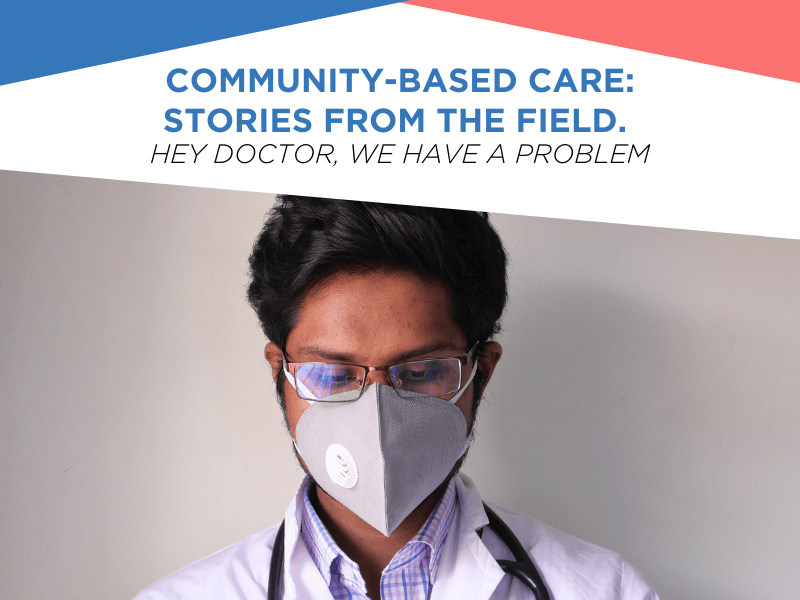Hey Doctor, We Have a Problem
For over a decade, I’ve had the privilege of working with people living with diabetes and related comorbidities. Although I believe I’ve made a difference with my skill sets, I don’t know what it’s like to live with diabetes from personal experience. After all, those that suffer much, know much. The closest I have come to daily life with diabetes is pricking my fingers as part of an educational exercise and wearing a Continuous Glucose Monitor (CGM) for several days to monitor my glucose levels. Wearing a CGM was an interesting experience. I learned a lot about my glucose patterns and the benefits of having access to actionable data that otherwise would have required a relentless number of finger sticks.
Despite understanding the advantages of having access to the CGM data, I couldn’t shake off an uneasy feeling. I knew I would be uncomfortable sharing this information with anyone, let alone my doctor. I wondered how my patients felt about sharing their information with me. I couldn’t remember the last time I set time aside to discuss any discomfort or embarrassment they felt, knowing that every out-of-range reading captured is visible to me and the care team.

Honestly, I was concerned about what this revealed about me. There’s an old saying that doctors make the worst patients. Like many folks, I have a complicated relationship with my primary care provider. When it comes to healthy behaviors, I struggle with the same issues as the folks who are referred to me for help. Does that make me a lousy doctor? Access to all the peer review journals, professional training programs, self-help books, and extra letters behind my name: this hasn’t changed the fact that some days it is a huge struggle to spend 30 minutes on my expensive stationary bike.
Eighty-eight million Americans are at risk of type 2 diabetes. This number includes healthcare providers. Studies on physician health have focused on work-related stress, mental health, and substance abuse. Little attention has been given to lifestyle behaviors and preventive health care. As trusted healthcare providers, many of us struggle to practice what we preach in our personal lives. Sadly, our patients can see this as well. I remember talking passionately to a group of women executives over lunch about our programs for diabetes management and prevention. As if on cue, they all looked down to see what I had on my plate. I get it: we’re not going to make progress advocating for plant-based diets and all manners of foods our patients can’t even pronounce, let alone afford, while being famous for quarreling with the chef at the hospital cafeteria for not adding an extra piece of fried chicken to our lunch order. Few doctors are bold enough to come out in the open and say these words: “I have type 2 diabetes and some days it is a struggle.” Or, “I have hypertension and despite several attempts, I’m still trying to quit smoking.” Providers can play an important role in addressing the guilt and shame associated with preventable health conditions that plague us as a society, by bringing their own struggles into the light.

There’s no one-size-fits-all solution out there that will work for everyone. But physicians can play an important role in addressing the misconceptions and challenges, and play an active role in creating systems with a higher probability of success for their communities. Physicians who practice healthy behaviors are more likely to counsel their patients about them. Simply put, encouraging providers to be healthy can improve the health of their patients. We are part of the millions of individuals struggling. Let’s get a little uncomfortable discussing these issues more openly. My hope is that 2022 is the year healthcare providers collectively get off the sidelines and become active participants, in order to create safe spaces for these conversations to happen, and work on practical solutions that improve our personal health. Our personal credibility can motivate our patients to adopt healthy behaviors.

Vivian Ayuk, PharmD, CDCES


Recent Comments